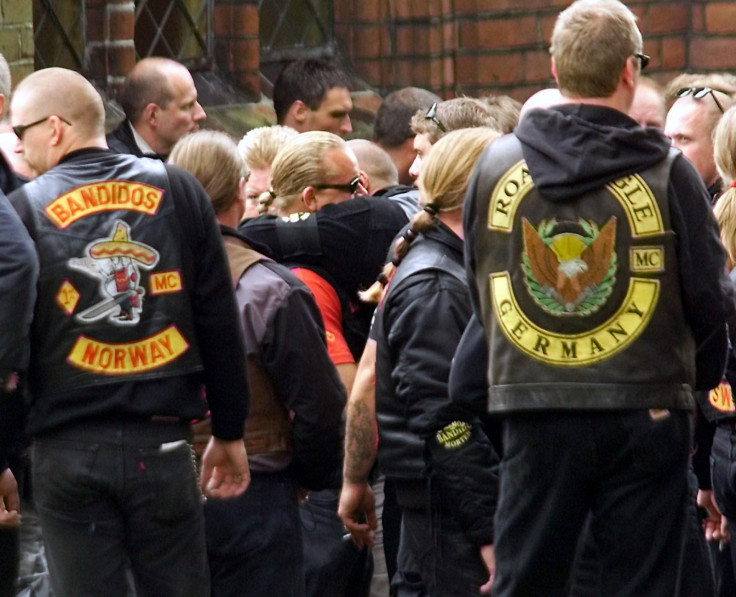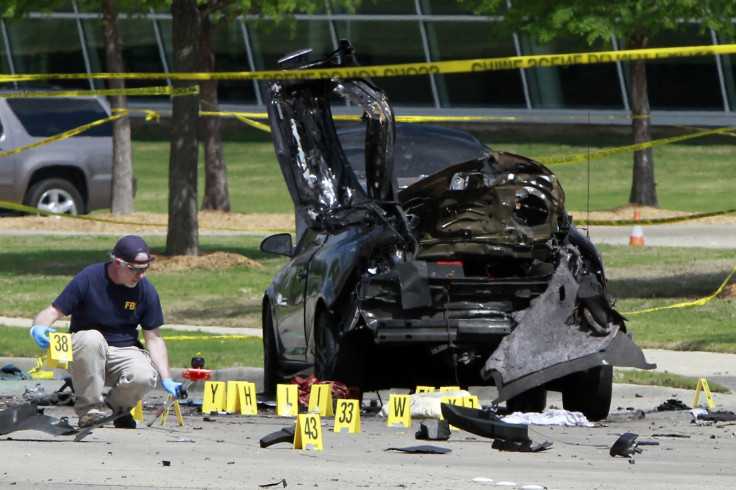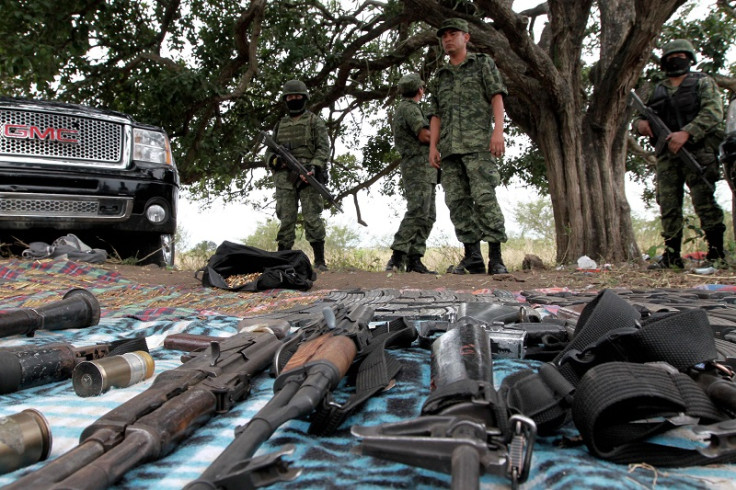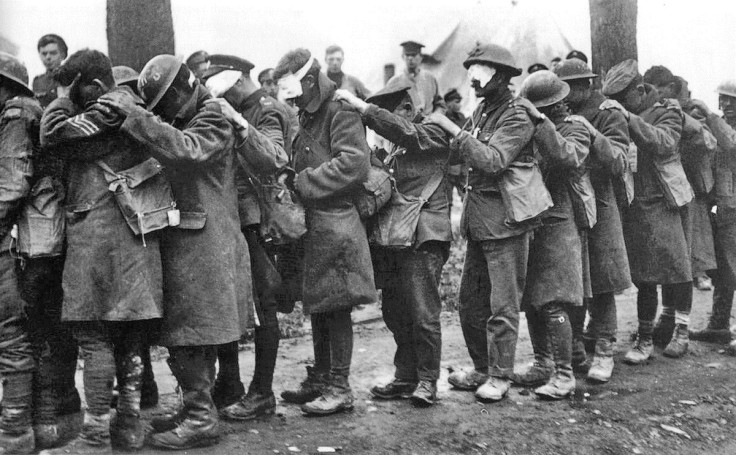Waco Texas biker gang shootings shocked the world - but no-one cares about Mexico drug war deaths

Earlier this month there was a terrible and bloody shoot out in the Americas. Gunfire filled the air and men fell. Spent cartridges were strewn at the feet of policemen. The blood of gang-members spilled upon the dusty streets. It was yet another tragedy in a country where gangs and police all too often clash and American guns blaze.
But these killings did not dominate the headlines. Not like the clash between the Bandidos and the Cossacks gang that unfolded in the town of Waco, Texas on 17 May, where nine bikers were killed in a firefight at a Twin Peaks restaurant.
No. The shooting described above was a three hour gunfight that took 43 lives almost a thousands miles south of Waco, in Tanhauto, Jalisco State – a town in the west of Mexico.
It was another mass shooting in a country that, according to gunpolicy.org, saw over 11,300 gun deaths in 2010. And whereas the Waco shootings made front pages the world over, the shootings in Tanhauto remained buried in the inside pages, if reported at all.
Perhaps this is understandable. Mexico and gun violence has become almost synonymous. But Mexican gun violence should capture our attention as much as the Texas shootings because the levels of violence in Mexico are, in part, linked to the proliferation of American guns in Mexico.
Of course, the State of Texas undoubtedly has its fair share of guns and gun violence. Between 2004 and 2013 there were 12,874 murders there, according to FBI data. Of these, 66% (8,489) were with firearms and only 15% (1,896) were with knives. In 2013 alone, there were 4,988 non-fatal injuries in Texas - 60% from guns.

Homicides and attempted murder do not show the whole picture either. Between 2004 and 2013 there were 26,742 suicides in Texas according to data from the Center for Disease Control. Of these, 15,420 were with a firearm – about 58%.
Despite these worrying figures, Texas remains in love with guns. The magazine Guns and Ammo put the Lone Star State at No. 14 in terms of the 'Best States for Gun Ownership in 2014'. The law there does not require any unique licences to purchase or own firearms.
It's a love affair that continues to bloom. As the dead gang members lie in Waco's morgue, the Texan authorities are currently debating loosening, not tightening, the State's gun laws.
A 'campus-carry' bill, which would permit concealed handguns in college classrooms, is scheduled for a Texan House vote today. And an open carry bill, which would permit guns to be carried in plain sight almost everywhere, passed both chambers in different forms last week. Clearly, in the wake of the Waco shootings, these debates have, once again, raised the entire argument of the 2<sup>nd Amendment and whether it fuels or reduces gun violence.
But that debate about guns should not just be one about an American's right to bear arms. It should be wider than that.

Guns that pass through the Lone Star State are undoubtedly involved in Mexican gun violence and it is highly probable that the guns used in the shootings in Tanhauto had passed through a state like Texas to get there.
Mexico has virtually no firearms manufacturing industry, they have very restrictive gun laws, and there is just one gun shop in the entire country. Yet the numbers of US guns that end up in Mexico are breathtaking – it is estimated that about 253,000 are smuggled in annually.
It's not hard to see where they come from. On the other side of the 1,951-mile border lie 6,700 licensed US gun shops. There is serious money to be made. One study found that 47% of US firearms shops were dependent to some degree on Mexican demand.
The outcome of this was summed up in a US Senate report, which concluded that about 70% of guns in the hands of Mexican drug cartels came from the United States. Mexican cartel leaders boast they buy all their guns from there.
Hard data backs up these observations. When an American federal ban on semi-automatic weapons expired in 2004, Mexican gun deaths increased by 35% in the Mexican counties adjacent to Arizona, New Mexico and Texas – all of which had lifted the ban. But the homicide rate stayed about the same in the Mexican counties south of California, where the state ban on semi-automatic weapons remained in place.

'The use of gas ended any illusions that war was fair. It wiped out the 'Football in No Man's Land' Christmas spirit and replaced it with the notion that the Great War was one being fought for the very soul of civilisation. The trenches of Flanders became the staging ground for a Manichean struggle between good and evil. Total War had come to pass.'
Read Iain's piece on the second battle of Ypres here.
During the US federal weapons ban the number of arms crossing south every year was about 88,000; after the ban ended this amount increased by 187%. It has been estimated the lifting of firearm sale restrictions north of the border resulted in over 2,500 additional homicides in Mexico.
So, in a sense, the debate about gun control and violence that inevitably flared after the Waco shootings should not just focus on the American citizens' right to bear arms. It needs to address what repercussions the 2<sup>nd Amendment has on Mexican gun deaths and on the culture of fear that dominates many Mexican towns. It is a fear so deeply rooted that it has caused thousands of Mexicans to flee north to the United States where, ironically perhaps, their chances of being killed in a gangland shoot out are significantly lower.
As Alec MacGillis wrote in the New Republic: 'The surge of migrants coming to the US from Central America is being fueled in part by the movement of guns heading in the other direction, from US dealerships doing brisk business with the help of porous guns laws and a powerful gun lobby.'
The deaths of Americans in mass shootings will always garner more attention than the deaths of Mexicans in the media. But it is worth remembering that the silent shadow that lurks behind every American gun debate is, all too often, one cast by the tombstone of yet another dead Mexican.
Iain Overton is Director of Policy at the London based charity Action on Armed Violence. He has just published a book entitled Gun Baby Gun: a bloody descent into the world of the gun.
© Copyright IBTimes 2024. All rights reserved.






















